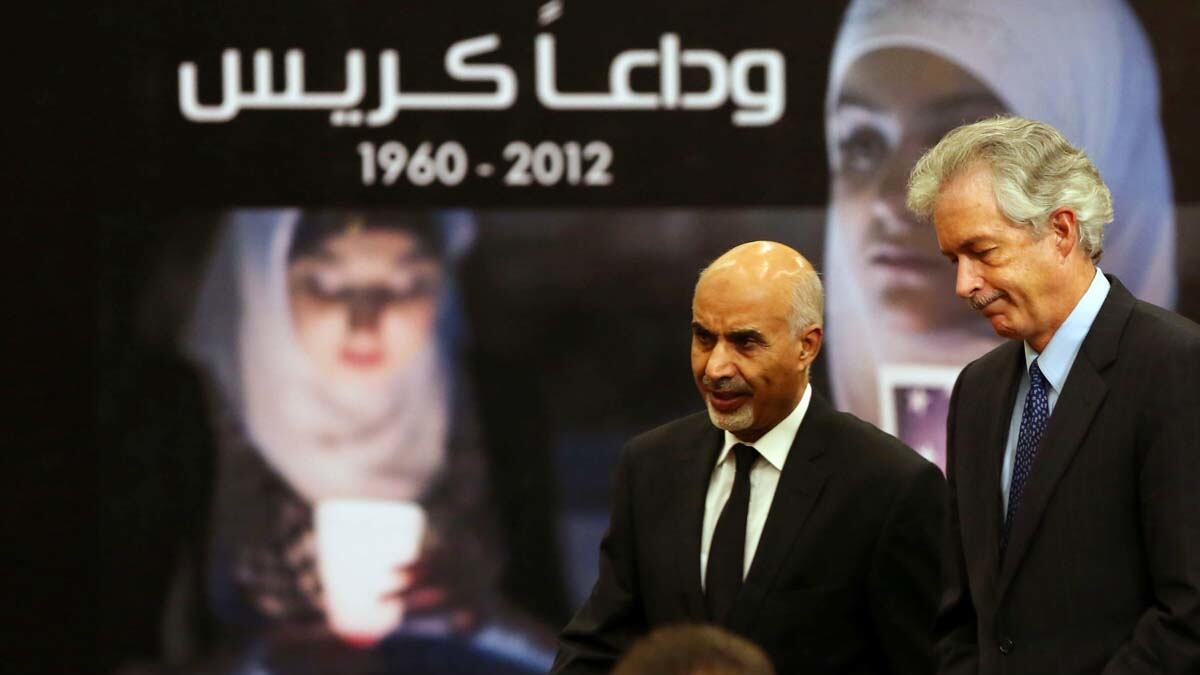The tempest over what happened on Sept. 11, 2012 in Benghazi in the terror attack that killed four Americans and how it was portrayed by the administration after the fact masks a far more serious policy issue that will be a formidable challenge to the next president. The revolutions across Arabia in the last year and a half have created a dangerous chaos that al Qaeda and its allies are exploiting from Libya and Mali to Syria and Yemen. How we deal with the Arab revolutions and the resurgence of al Qaeda and the global jihad will be a defining problem in the next few years.
Policy and intelligence officials routinely have to brief the public, the media, and Congress on fast-breaking events about which they typically have incomplete and often inaccurate early accounts. Believe me, I’ve been there. Trying to discern who carried out a terrorist attack is especially difficult. It took more than a year after Pan Am 103 was blown up over Scotland before the evidence of Libyan intelligence responsibility emerged clearly. Rarely do we have the kind of high- quality intelligence we got right after 9/11 pointing to al Qaeda. Initial reports usually should be greeted with caution, and early readouts treated as preliminary. To call for the resignation of officials for providing accounts that are later overtaken by new information is silly.
Al Qaeda has been killing American diplomats in Africa since 1998, and they and their allies are likely to kill more. The revolutions that are sweeping away the old police states that dominated Arab politics for the last half century are an unintended but enormous boost to al Qaeda. The old police states, called mukhabarat states in Arabic, were authoritarian dictatorships that ruled their people arbitrarily and poorly. But they were good at fighting terror. Libya’s Gaddafi gave America significant help in the battle against al Qaeda.
In Egypt, Libya, and Yemen, the United States (and many other countries) worked closely for decades with the mukhabarat to fight al Qaeda. It may have been a devil’s bargain, but it was good counterterrorism. We still work closely with Saudi and Jordanian intelligence to fight al Qaeda. The Saudis have thwarted at least two attacks on our homeland since 2010; the Jordanians help us fight across the region and one of their officers died with ours in al Qaeda’s attack that killed seven CIA officers in Afghanistan in 2009. So we still need our partners.
But we also need to partner with the new post-revolutionary governments in Cairo, Tripoli, and Sanaa—where reformers are trying to build more accountable and democratic regimes that don’t repress their own people. These new governments are trying to do something the Arab world has never done before—create structures where the rule of law applies and the secret police are held accountable to elected officials. That is a tall order, especially when terrorists are trying to create chaos.

And the revolutionary process is not over. The lesson of the last two years is that it is almost impossible to predict what will happen next in the Arab Awakening. There are powerful rumblings of unrest still percolating in at least three so-far-relatively-stable Arab states—Algeria, Jordan, and Saudi Arabia. Algeria is the largest country in Africa and the Arab world. It underwent a decade of violent jihadist terror in the 1990s. And it is a police state whose mukhabarat chief is a KGB-trained spymaster with a reputation for ruthlessness. Jordan has been a critical American ally since the 1950s, but the King has repeatedly failed to deliver on promises of political reform and is facing mounting calls to step aside.
Saudi Arabia is of course the biggest challenge. The Kingdom has been a close American ally since 1945. With the uncertainty in Egypt, America needs Saudi Arabia more than ever. Its help is critical in Yemen, in confronting Iran and in providing affordable energy. But it has also crushed a democratic reform movement in Bahrain and stands ready to do the same in Jordan if the situation there becomes unstable.
How America deals with the complexity of change in the Arab world is a major issue facing our next president. There are no easy answers. We need to support democratic change and accountable government because police states are inherently unstable. But we also need to work with old allies to fight immediate threats. The argument over whether the Benghazi attack was spontaneous or premeditated will be answered by the investigation that is underway. How we will deal with the complexity of the Arab Awakening should be answered by the candidates in the debates. We need serious answers, not soundbites.




